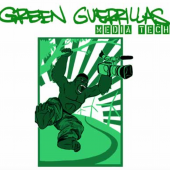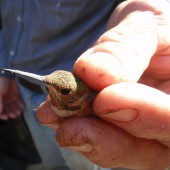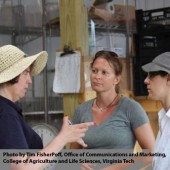
Abstract: The Green Guerrillas Youth Media Tech Collective, a community organization based in Ithaca, New York, set out to define sustainability in their own terms by giving a diverse group of local adolescents the opportunity to engage subjects of environmental and social justice through digital media production within the auspices of a unique afterschool job-training program. Interviews with youth participants and adult mentors illustrate key concepts for environmental and sustainability educators desiring to facilitate engaging learning environments utilizing multimedia. Excerpts of their interviews provide a lens into the workings of a non-formal educational environment that explicitly embraced media literacy, media arts production, and community engagement to advocate for issues of justice and sustainability while facilitating opportunities for ecological learning. This case study highlights the potential of digital storytelling to foster students’ knowledge retention, connection to nature, sense of empowerment, and ability to create positive change in their communities.
Continue Reading
This paper explores examples of the ways that indigenous and traditional stories are tools to guide humans through complex interactions with ecosystems and to remember our shared fate with the land. Traditional stories are not mere superstition or poor substitutes for scientific thinking; they are made up of extremely complex, finely coded information on human subsistence and infused with elements that ensure they continue to be told and remembered
Continue Reading
There is evidence that the American agrifood system is a significant contributor to environmental, economic, social, and ethical-animal welfare damage to the earth and to society and is unsustainable, yet the worldview of a substantial percentage of the population conflicts with this assessment. A significant number of researchers, non-governmental organizations, and government entities assert that the detrimental effects of industrial agriculture must be addressed without delay and sustainable agricultural practices implemented. Attempting to change a worldview is not an easy task. A growing body of research in other disciplinary areas suggests that storytelling can serve as an effective method of fostering change. This mixed-methods study examines the role of storytelling in effecting positive change in worldview and attitudes toward sustainable agriculture. The study explores the effects of Story-based versus Information-based treatments on such change. The hypothesis of the study is that Story-based treatments will be more effective in promoting positive change than will Information-based treatments. The findings of the study provide evidence supporting this hypothesis. The story characteristics found to be associated with positive change included: first-hand personal view, vivid description, and identification with the story narrator.
Continue Reading